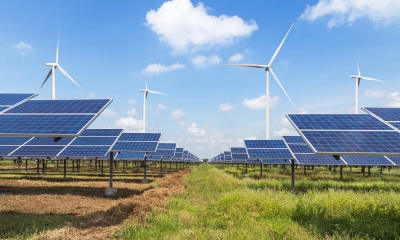
For four days in May, Portugal, the European country known for soccer and Cristiano Ronaldo, was powered by renewable energy. Yes, for four consecutive days the country’s electric usage was provided entirely by wind, solar and hydro-generated energy.
The country’s zero emission milestone was announced just days after Germany, another European superpower, announced that clean energy had powered almost all its electricity needs on May 15.
Overall, renewable energy is gaining ground on the world’s electric grids, accounting for nearly 60 percent of the world’s new electric capacity, according to the renewable energy research network REN21.
Still, wind and solar panels together account for just 4 percent of the total power supply. Though the coal industry has been on the decline in some places, the world is still largely reliant on fossil fuels to generate power. Efforts to cut planet-warming greenhouse gases depend markedly on the power sector, which accounts for about 42 percent of all energy-related carbon emissions. Nuclear plants can contribute to the clean-energy bottom line, but they face opposition over waste and safety issues, as well as political and economic headwinds.
Wind and solar command a lot of attention when it comes to renewable energy, but in many cases, other low-emissions sources are providing big assists. A key player in Portugal’s win is hydroelectric power, which accounts for about 19 percent of the country’s supply. Hydro can provide the steadier output needed to fill in gaps when the wind isn’t blowing or the sun isn’t shining.
Having a strong reserve of geothermal energy can help lay a foundation, too, as is the case in Iceland, Philippines, and others. But developing those resources takes time, money, and political consensus, which can often hold projects back.
Picture Credit : Google

